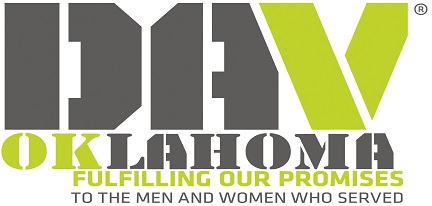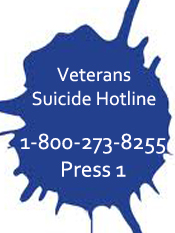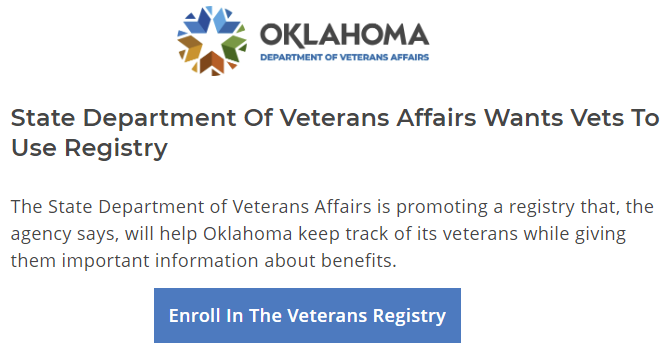Sometimes the most difficult conversations to have are the most important, like helping your loved ones be prepared for when you die. Talking to your family about this topic beforehand is a way to show that you care, and it will help to ease the financial burdens they may face. Following are 6 things you should brief your beneficiaries on:
First. Make sure you understand what an (AOP) beneficiary is and the nature of the benefit to which they are entitled.
Second. Tell your beneficiaries who they are! Hopefully, you’ve designated your beneficiaries for any (AOP) that may be due. When no beneficiary is named, the payment is made to the highest person in what is known as the “Order of Precedence.” The Order or Precedence is the federally mandated order of inheritance that applies to legacies without a designated beneficiary.
Third. Let your beneficiary know that sometimes money that has already been deposited into your checking account needs to be returned to DFAS. Military retired pay is only payable for as long as you are alive. Entitlement to your military retirement ends when you die.
Fourth. Tell your beneficiaries what documents they will need to send in to make their claim. One copy of the death certificate that includes the manner of death needs to be sent to us. Also, each beneficiary should complete a Claim for Unpaid Compensation (SF 1174).
Fifth. Let your beneficiaries know that sometimes there is no money due. Each situation is different. It depends how up to date the account was kept. You can make sure your account is in good standing by performing a yearly audit.
Sixth. When an arrears payment is made, there is a statement on the check that reads, “Retired Pay Payable only during life of Payee.” Please do not let this statement alarm your beneficiaries. As long as the beneficiary’s name is accurate on the check, the check can be cashed.
Death preparations:
DoD contractors:
Senior executives from a major U.S. defense contractor toured China last month as part of their search for a foreign company to build a dry dock for U.S. Navy ships, with the help of the chairman of the Senate Appropriations Committee. The trip raised eyebrows both inside the Pentagon and among experts who don’t believe a Chinese company should be involved in U.S. military-related projects. The company, Ingalls Shipbuilding, is a division of Huntington Ingalls Industries, which advertises itself as “America’s largest military shipbuilding company” and has
built more U.S. Navy ships than any other military shipbuilder. Ingalls is based in Mississippi. The problem is, it needs a new dry dock to build ships there and says there are no American companies that can do it. So Ingalls is looking abroad for help
• Veteran and active duty credit scores:
Sen. Joe Donnelly (D-IN) is pushing legislation to protect the credit ratings of military veterans with unpaid medical bills. Donnelly said 7 SEP that veterans can be “wrongly penalized” when the Department of Veterans Affairs is slow to pay for health care they receive from non-VA physicians. Such delays “can create a financial hardship for some veterans and even damage credit scores,” Donnelly, a member of the Senate Armed Services Committee, told reporters in a conference call. Donnelly is the Senate sponsor of the Protecting Veterans Credit Act, which would impose a 1-year delay on the reporting of medical debt to credit agencies for veterans who access health care through the Veterans Choice Program. The delay would begin when a debt collector contacts the veteran. Under the Veterans Choice Program, VA is to reimburse non-VA physicians to care for veterans who must wait at least 30 days for a VA appointment or who live more than 40 miles from a VA clinic or hospital.
House co-sponsors include Rep. Jackie Walorski (R-IN) , Roscoe Butler, deputy director for health care for the American Legion, said during Wednesday’s conference call that veterans should “not have to worry about whether VA has paid the bill timely.” Veterans’ credit ratings can be “destroyed,” Butler said, “because of VA’s slow payment process. That is wrong.” Donnelly said he does not know how many veterans have been adversely affected by tardy reimbursements from the Veterans Choice Program, although he said “one is too many.” “The VA should take care of this, and it shouldn’t ever even get to the point where this act, that we hope will become law, has to even be needed,” Donnelly told reporters. “It’s clearly something the VA should be handling, and we’re going to stay after them to get it right,” he said.
There are several instances known by me where either a veteran or an active duty individual went to a private doctor at the request of the VA for specific tests and the VA took 6 months to pay the bill
• VA appointments:
Veterans receiving care at Department of Veterans Affairs’ (VA) Medical Centers will now be able to schedule routine ear and eye appointments at local VA Audiology and Optometry clinics without a primary care referral – a move that eliminates multiple steps and gets Veterans into appointments quicker. Before now, Veterans seeking appointments with audiologists or optometrists had to first make an appointment with a primary care physician for a referral for a routine clinic consult visit. A clinic representative would contact the patient to set up the consult
appointment, which could result in a several weeks’-long lag between the appointment and when the Veteran was actually seen. The new process, the Audiology and Optometry Direct Scheduling Initiative, which began as a successful pilot at three sites in 2015, is being expanded to all VA Medical Centers.
• VA now taking health benefits applications by phone:
Veterans can now apply for Veterans Affairs health benefits over the phone. The VA published a final regulation on Monday that allows former service members to complete VA health care applications by calling 877-222-8387.
Note – this applies only to applications for health benefits; it does not apply to making appointments with your primary physician or a specialty clinic.
Call to Action H.R. 5620
The Chairman of the House Veterans’ Affairs Committee, the Honorable Jeff Miller, introduced H.R. 5620, the VA Accountability First and Appeals Modernization Act of 2016. This legislation could significantly improve the ability of veterans to receive more timely and accurate decisions on their claims, and appeals of denied claims, for earned benefits.
This bill contains a new processing framework that would make positive and fundamental changes in the way VA adjudicates benefits. This legislation would create multiple options for veterans to redress benefits decisions. Under this legislation, for example, as long as a veteran continuously pursued redress within one year of the most recent decision, the veteran would be able to preserve the earliest effective filing date. This legislation also would allow veterans to present new evidence and obtain hearings before the Board of Veterans’ Appeals or the Veterans Benefits Administration if they so desired.
Over the past few years, the number of appeals awaiting decisions has risen dramatically – to almost 450,000 – and the time for an appeal decision ranges between three and five years, a delay that is simply unacceptable. If faithfully implemented and if fully funded by Congress in the years ahead, H.R. 5620 would enable veterans to get more timely and accurate decisions on their claims and appeals.
Please use the prepared electronic letter to urge your Representative to cosponsor H.R. 5620 and to urge the House Leadership to bring this bill to the floor of the House for a vote before the end of the 114th Congress.
As always, we appreciate your support for DAV and your grassroots activism and participation in DAV CAN. Your advocacy helps make DAV a highly influential and persuasive organization in Washington.
Click the link below to log in and send your message:
https://www.votervoice.net/BroadcastLinks/z5j5jaVLxcI9uOgBN7T4aQ
Vet appeals legislation – H.R.5260:
VA convened a workgroup in March consisting of DAV, other stakeholders and VA officials in order to seek common ground on a new framework for appeals. After months of intensive efforts, the workgroup was able to reach consensus on a framework of a new appeals system that could offer veterans quicker decisions, while protecting their rights and prerogatives. The number of appeals awaiting decisions has risen dramatically – to almost 450,000 – and the average time for an appeal decision is between three and five years, a delay that is simply unacceptable.
Before Congress took recess in July, Chairman of the House Committee on Veterans’ Affairs, Congressman Jeff Miller of Florida, introduced H.R.5620, the “VA Accountability First and Appeals Modernization Act of 2016” to the Committee. This legislation could significantly improve the ability of veterans to receive more timely and accurate decisions on their claims and appeals for earned benefits. H.R. 5620, which contains the new appeals framework, would make fundamental changes to the appeals process by creating multiple options to appeal or reconsider claims’ decisions, either formally to the Board or informally within the Veterans Benefits
Administration. The central feature of the legislation would provide veterans three options, or “lanes,” to appeal unfavorable claims decisions; and if they were not satisfied with their decisions, they could continue to pursue one of the other two options.
• As long as a veteran continuously pursues a new appeals option within one year of the last decision, they would be able to preserve their earliest effective date.
• This legislation also allows veterans to present new evidence and
• This legislation also allows veterans to have a hearing before the Board or VBA if they so desire.
“If faithfully implemented as designed by the workgroup, and if fully funded by Congress and VA in the years ahead, H.R.5620 would make a marked improvement in the ability of veterans to get timely and accurate decisions on appeals of their claims,” said DAV Washington Headquarters Executive Director Garry Augustine. “We urge the House to swiftly approve this legislation and then work with the Senate to reach agreement on final legislation that
can be sent to the President to sign this year.” [Source: NCOA Advocate | Mary Dever | August 24, 2016 ++]
Women veterans call center:
Calling All Women Who Served in the United States Military! Do you know your Veteran status? Do you have a Veteran ID card? Should you receive any benefits from VA, like the GI Bill? Do you know what health care benefits you have earned? If you do not know the answer to even one of these questions, the Department of Veterans Affairs (VA) has established the Women Veterans Call Center (WVCC) just for you. The WVCC staff is trained to provide women Veterans, their families, and caregivers about VA services and resources. They are ready to respond to your concerns. The call is free, and you can call as often as you like until you have the answers to
your questions. The Call Center is available M-F 08-2000 EST, and on Saturdays from 08-1830 EST. The number is – 1-855-VA-Women
Any women veteran can use the WVCC, even if they are not registered with the VA or enrolled in VA health care and/or receiving care. You do not need to have wartime or combat experience to be considered a Veteran. Women Veterans should enroll for health care benefits to ensure they receive the comprehensive benefits package offered through VA’s national health care system. A review of the 33,000 calls received to date found the most common reasons people call in to the Call Center are to learn about benefits and eligibility and to discuss issues they face like homelessness, maternity care, Military Sexual Trauma, and environmental exposures. At times, there are issues that the Call Center cannot immediately resolve. In those cases, they research the best course of action/ locate the appropriate resources, and call the Veteran back to help her address her issues and concerns
VA Blue Water claims update:
The U.S. Department of Veterans Affairs (VA) has once again turned down an effort by Navy veterans to get compensation for possible exposure to Agent Orange during the Vietnam War. In a document released 12 August, the VA said it would continue to limit benefits related to Agent Orange exposure to only those veterans who set foot in Vietnam, where the herbicide was sprayed, and to those who were on boats in inland rivers. The VA compensates these veterans for a litany of associated illnesses, including diabetes, various cancers, Parkinson’s disease,
peripheral neuropathy and a type of heart disease.
The U.S. Court of Appeals for Veterans Claims last April struck down VA rules that denied compensation for sailors whose ships docked at certain harbors in South Vietnam, including Da Nang. Those ports, the court determined, may have been in the Agent Orange spraying area. The court ordered the VA to review its policy. But on Friday, the VA largely stood by its old policy and once again asserted that there’s no scientific justification or legal requirement for covering veterans who served off the coast. “Environmental health experts in VA’s Veterans Health Administration have reviewed the available scientific information and concluded that it is not sufficient to support a presumption that Blue Water Navy Veterans were exposed to Agent Orange,” the VA said in a fact sheet.




